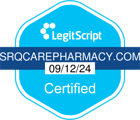5 Reasons To Compound Your Medications
By Rosanna Sutherby, PharmD
People choose pharmacy compounded medicines over commercially available products for a variety of reasons. Compounding pharmacists can prepare medications that are tailor-made to suit your needs. The following are five reasons to compound your medications.
You Need Your Strength or Dose Adjusted
If a medication is not available in the strength you need, a pharmacist can formulate a custom dose or strength to fit your needs. For example, a newborn or young child with a heart condition or acid reflux may need a smaller dose of heart or reflux medication than what is commercially available. Your compounding pharmacist can create a liquid formulation with a unique dose for your child.
You or Your Child Cannot Tolerate the Taste of a Liquid Medication
Let’s face it, many medicines don’t taste great, and you cannot obtain the benefit of any medication if you can’t swallow it. Fortunately, your pharmacist can change the taste of most liquid medications to make them more palatable for you or your child.
You Are Allergic to an Inactive Ingredient in a Medication
Most medications contain inactive ingredients that act as binders, coloring agents, or preservatives. Examples of these ingredients include food dyes, lactose, wheat, and cornstarch. If you have allergies to any of these components, your compounding pharmacist can prepare capsules that contain the active drug but leave out inactive substances that you cannot tolerate.
You Need to Change the Form of Your Medicine
Often, a pharmacist prepares compounds to change the delivery method or the form of a commercially available product. It is not uncommon for a compounding pharmacy to prepare a medication in liquid form for someone who cannot swallow pills. Additionally, medicines can be made into suppositories, patches, or gels for patients who have difficulty absorbing drugs when taken orally.
You Want to Combine Medications
Whether it be for cost reasons or convenience, sometimes you may want two or more medications combined into one pill. If these are not commercially available, your compounding pharmacist can formulate a capsule that includes more than one active ingredient.
Everyone has different reasons for compounding their medications. Talk to your compounding pharmacist about your unique medication needs and see if medication compounding is a good choice for you.
About Author:
Rosanna Sutherby is a freelance medical writer and community pharmacist. She received her PharmD degree from Nova Southeastern University College of Pharmacy in Ft. Lauderdale, FL. Dr. Sutherby’s pharmacy practice has included patient education and medication management for various disease states, including diabetes, cardiovascular disease, mental illness, asthma and pulmonary disease, and pain management. Dr. Sutherby’s published work spans a variety of topics, including cardiovascular health, dermatology, women’s health, sleep disorders, mental health, vaccine education, and medication use and safety.
References:
- APhA. FAQs: Pharmaceutical compounding. Pharmacy Today. 2012;18(12):50-51. doi: https://doi.org/10.1016/S1042-0991(15)31594-2. Accessed 18 May 2021.
